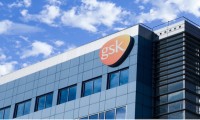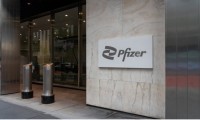-
Elli Lilly Cancer Drug Lands Its Second FDA Approval This Year
- Source: drugdu
- 114
- December 6, 2023
-
Lilly’s Jaypirca blazes leukemia trail with FDA nod, fast confirmatory trial filing
- Source: drugdu
- 98
- December 6, 2023
-
GSK Pulls Ahead of Pfizer in RSV Vaccine Market as Arexvy Nears Blockbuster Status
- Source: drugdu
- 109
- December 5, 2023
-
Pfizer Nixes Twice-Daily Oral GLP-1 Candidate After High Rates of Side Effects
- Source: drugdu
- 204
- December 5, 2023
-
Boehringer Ingelheim Targets Stroma-Rich Cancers in Potential $509M AI Deal
- Source: drugdu
- 193
- December 1, 2023
-
FDA opens investigation into secondary cancer risk with CAR-T therapies
- Source: drugdu
- 99
- December 1, 2023
-
With filing in Sanofi and Mylan insulin lawsuit, FTC amps up scrutiny on pharma’s patent tactics
- Source: drugdu
- 102
- November 23, 2023
-
Senate Democrats press Sanofi and AZ for answers as ‘unprecedented’ demand spurs shortage of RSV antibody Beyfortus
- Source: drugdu
- 200
- November 22, 2023
-
China’s NMPA grants conditional approval for Apollomics’ NSCLC drug
- Source: drugdu
- 106
- November 21, 2023
-
CDC rushes extra doses of Sanofi, AZ’s Beyfortus to ease supply shortfall
- Source: drugdu
- 139
- November 21, 2023
your submission has already been received.
OK
Subscribe
Please enter a valid Email address!
Submit
The most relevant industry news & insight will be sent to you every two weeks.













